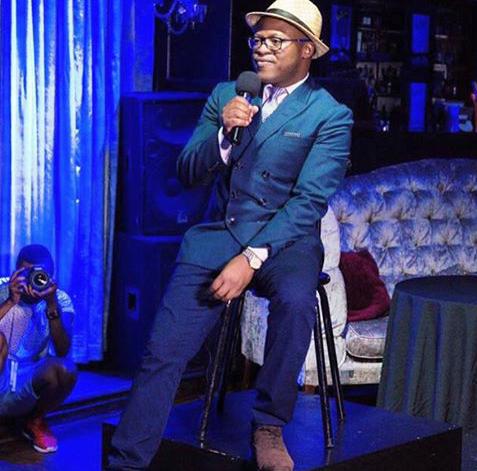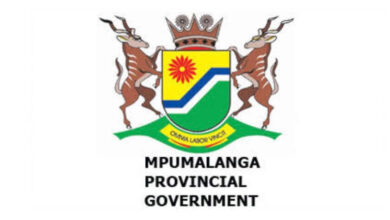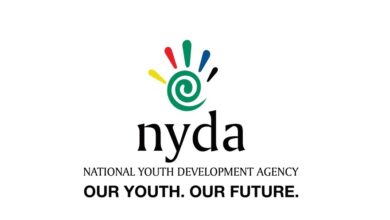Trending: Khaya Dlanga’s Article On #FeesMustFall

Title: Why I Too Am Angry Along With The Young Ones…
To be young means to be full of hope. To be young means to fight if you must keep that hope alive. Expensive fees will remove that hope from them after it had been given.
The worst thing you can do for someone is to give them hope and then take it away. That is what escalating university fees are doing. And so I want to urge the students to continue being angry.
It is especially difficult for black people. Most of those who go there with this hope are the first ones in their families to go tertiary, and some even then first to attain a degree.
Can you imagine being a parent, taking your child to an institution of higher learning and then halfway through it, you can no longer afford the escalating costs? It’s like being on one of the Apollo missions to the moon, and halfway, or even a third of the way there, you get told there is no more fuel. No amount of hard work is going fill that rocket with fuel. This is what many black students are faced with. Hope snatched away..
Our leaders say that they want to eradicate poverty, they want us to be a world leading nation. They want a fast growing economy.
Educate the nation
They want to raise millions of people out of poverty. Yet they make education, the one thing that is almost always guaranteed to lift people out of poverty, unattainable for millions of people. We cannot build this nation if we do not educate it.
When you make education inaccessible, you make prosperity only possible for the already prosperous. In South Africa, that is already a small portion. And we know what that means.
As Thabo Mbeki put it:
“South Africa is a country of two nations. One of these nations is white, relatively prosperous, regardless of gender or geographic dispersal. It has ready access to a developed economic, physical, educational, communication and other infrastructure.
“This enables it to argue that, except for the persistence of gender discrimination against women, all members of this nation have the possibility to exercise their right to equal opportunity, the development opportunities to which the Constitution of ’93 committed our country.
“The second and larger nation of South Africa is black and poor, with the worst affected being women in the rural areas, the black rural population in general and the disabled.
“This nation lives under conditions of a grossly underdeveloped economic, physical, educational, communication and other infrastructure.
“It has virtually no possibility to exercise what in reality amounts to a theoretical right to equal opportunity, with that right being equal within this black nation only to the extent that it is equally incapable of realisation.”
I remember when I was a little boy living in the rural Transkei. I would stand near the road to make sure that the livestock I looked after would not wander off to the road and be run over by a passing vehicle.
Something wasn’t right
One day while I was standing by the side of the road watching cars drive past, with some of them stopping to take pictures of us with our oversized clothing and stomachs and dry skins from swimming in the river. There was never any real plan to swim but we always ended up swimming and going back home with dry skins.
I started to notice that the people who were always in these fancy cars with boats trailing behind them with fishing rods sticking out the windows were always white. They always looked so happy. So carefree. So white. I knew that there was something wrong. Why didn’t black people have any of these things? I didn’t know what was wrong but I knew whatever was going on wasn’t right.
Some of the livestock I looked after would manage to pay for my first year of tertiary education, accommodation, food, transport, the expensive equipment that was needed for the course I was studying. New clothes were a luxury. Yes, I had plenty of underwear and socks with holes in them. They were not a priority.
When the money dried up. I was very aware. My studies began to suffer because of two things: at first, I became homeless because I didn’t have a place to stay. I had to choose between having food and having a place to stay or having food but no place to stay. The choice I made was to have food but no place to stay.
Struggling to survive
For a few months I stayed illegally in a flat that was being renovated, removing rubble every night and waking up early every morning because I didn’t want the workers finding me still asleep and then them having the bright idea of locking the door when they left in the late afternoons after working.
I even had to become a criminal in order to be able to go to college. I used to forge my monthly train ticket, I didn’t want to buy a train ticket because that would take away from the little money I had for food and supplies for my college projects. I would put my ticket in a milky transparency I had inserted inside my wallet to ensure that the conductors would not see that the ticket was a forgery. I despised the fact that I had been reduced to this.
After some time, the workers arrived too early and I had to run away, never to return. I ended up sleeping on the desks at the college I was studying at in the evenings. Unfortunately, some nights, which happened frequently, students worked late into the nights and I would pretend I too was working late like them.
When in reality, not only did I have nowhere else to sleep, I wasn’t working late because I had run out of money for supplies to complete projects. It was a snowball effect. You appear to be performing poorly because of other circumstances that no one wants to consider because privilege only knows privilege. It cannot understand that which does not come from whence it comes.
The white kids would work late and leave in their cars or would be picked up by a brother, a sister or a parent in the middle of the night. There were no more than five black students.
In my case, I went to a private college, the students I stand in solidarity with are not in private colleges, but I know that there are many who don’t want to have the story that I have. In fact they shouldn’t. Yet there are some who have the story that I have. In 2015. 20 bloody freakin’ 15. And yet we still have people who want to glamourise poverty.
At the time, my level of thinking was not as advanced as today’s students who trace back the fact that they struggle financially because their parents and grandparents were handcuffed and prevented from improving their lives by apartheid policies. For me, it was simply because my mother was not educated and did not have a job.
That was that. I had no thought of the sinister plot that had been hundreds of years in the making to reduce people like me to nothing more than second-class citizens.
History stalks our present
We have people out here asking why students aren’t applying for loans. What they don’t think about is the fact that some of the parent’s don’t have well paying jobs that will allow banks to provide those loans. And still others have parents who do not work. So tell me, how a bank will take surety from a person who does not work? And all of this is a legacy of our history which still stalks the present. Apartheid was designed to trap the black person in a cycle of poverty and white people would be propelled into a perpetual gift of prosperity. How? Let me simplify as I did in a blog, We Are Not The Same,
“For a start, being white meant that you had access to better schools, as the government spent at least eight times more on the education of a white person than it did on a black person. What is the result of this? Generations of white people received a superior education and this meant that they had access to better jobs (not forgetting that the best jobs and universities were reserved for white people anyway). Naturally, white people would end up with more money than black people.
“This also meant that for generations white people were able to accumulate wealth, knowledge and know-how while black people were left behind. As a result, white children who were born after the end of apartheid still benefit from what their parents benefited from. A nice house in the suburbs, better health care, access to good schools because their parents were able to have a better job because they were able to go to university and receive superior qualifications.
“That is then transferred to their children, who start off from a better position than their parents.”
This was followed by numerous privileges.
Because blacks do not have these privileges, expensive university fees shut blacks out – the end result, no transformation in the work place – no economic freedom. We end up being second class citizens in our own country.
Let the kids liberate us from our own blindness. Viva youth of 2015 viva!
Khaya Dlanga




